Published
- 08:00 am

Cutting-edge affordability technology will enable personalised decisions that accurately reflect a customer’s financial circumstances
Early tests show a 10% increase in acceptance rates without any compromise to affordability assessments or credit performance
Digital lending platform Oakbrook will soon be able to offer an additional service to enable more people access to fairer and affordable credit, as they pilot Experian’s Work Report™ tool, a feature of Experian’s Affordability Passport, to enhance their loan application process.
Using the Work Report feature, customer’s applying for a loan with Oakbrook will be able to give consent to share their employment information in a single digital exchange.
Experian’s Work Report™, provides direct confirmation of a customer’s gross and net income, as well as employment status and tenure, in a matter of seconds. The service is the first digital verification service that allows a customer to consent to digitally share their payroll information.
Work Report™ is produced in partnership with global Fintech platform Salary Finance and recently onboarded payroll software providers, Sage and Zellis. It will give the opportunity for 1 in 3 (over 10 million) employees to share their employment details.
Combining real time access to granular transaction and employment information provides a more rounded picture of credit and affordability risk. Adding Work Report, to their already existing set of tools, further enables Oakbrook to accurately confirm a customer’s affordability, helping make a faster and simplified lending decision based on their financial position.
Testing of the service by Oakbrook Finance prior to launch has shown a potential 10% increase in acceptance rates, on some consumer segments applying for credit, without any compromise to affordability assessments or credit performance.
The verification service can be used throughout the credit application process to reduce credit risk and minimise fraud. It also adds to the tools Oakbrook already uses to meet affordability regulations and treat customers fairly.
Paul Speirs, Managing Director of Digital Consumer Information at Experian, said: “This partnership comes at an incredibly important time, as many will be feeling the strain of fluidity in the UK employment market and pressure on household incomes from a rise in the cost of living. The ability to accurately verify a customer’s employment information provides a much better understanding of a customer’s affordability and provides them with affordable products that suit their financial circumstances.
“This is good news for new customers, some who may have been previously declined, and existing customers including those who experienced a financial shock. We’re delighted to be working alongside Oakbrook on this exciting pilot.”
James Blakey, Chief Analytics Officer at Oakbrook said: “We’re delighted to be working with Experian and Salary Finance on this pilot for Work Report, and to be the first UK lender to trial it. By using Work Report, we’re adding to our already extensive set of tools which help us assess the affordability of loans for our applicants. Our purpose is to simplify and personalise borrowing and we’re really looking forward to seeing the role that Work Report will play in helping us achieve this.”
Related News
- 03:00 am
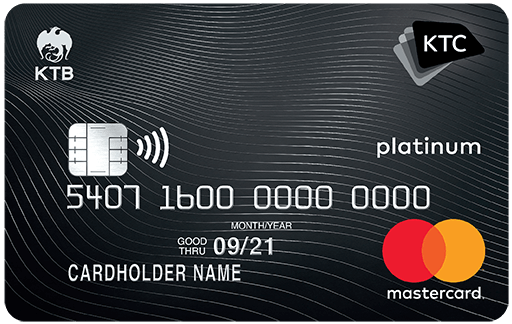
Krungthai Card Public Company Limited., one of the leading card issuing company and JCB International Co., Ltd., the international operations subsidiary of JCB Co., Ltd., Japan's only international payment brand, announce the launch of issuing the KTC JCB Ultimate Credit Card in Thailand.
Mr Rathian Srimongkol, President & Chief Executive Officer "KTC" or Krungthai Card Public Company Limited, said, "KTC was honored by JCB to be the first credit card in Thailand to issue a credit card of the highest status, that is, the 'KTC JCB ULTIMATE Credit Card' to expand the membership base to those who earn 50,000 baht or more, love to travel with a taste of fine dining, and often shop online. KTC truly hopes that the special privileges of the card will be the go-to option for those that love everything Japanese and have fun with living like the "Live life that is 'Ultimately Yours'" slogan.
Mr Ryo Morita, Managing Director of JCB International (Thailand) Company Limited said, "We are delighted to announce the first JCB Ultimate card in Thailand with KTC. Our Ultimate service focuses mainly on online merchants to accommodate to the new normal. JCB has analyzed the payment transaction to match the need and we strongly believe that the new issued card will fit to the lifestyles of our customer. We are also preparing for exclusive offers for overseas traveling especially in Japan after the boarder is open."
Related News
- 05:00 am
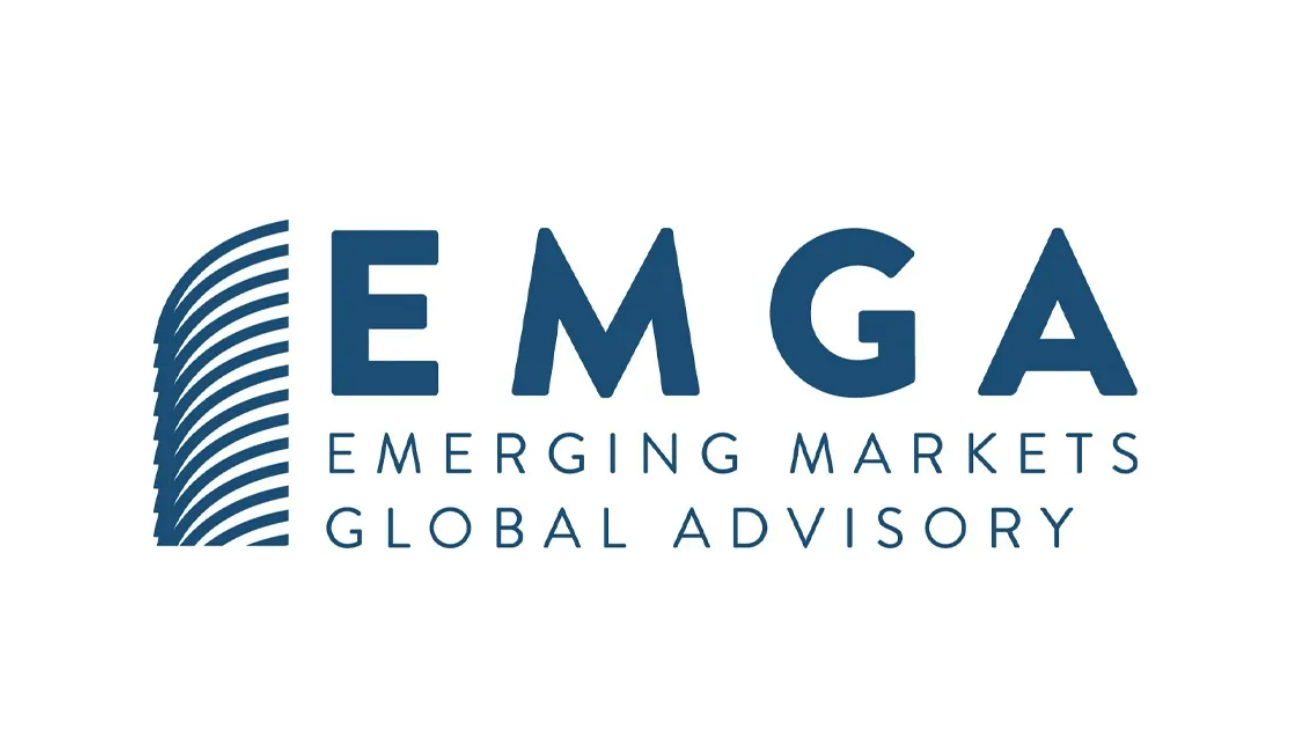
Annapurna Finance raised EURO 15 mn of senior debt from OeEB the Development Bank of Austria, this facility will provide financial assistance to its clients in microfinance space. EMGA advised on the transaction.
The EUR 15 million debt facility comes at a time when financial institutions world-wide are exploring new cross-border funding options to further deliver on their objectives.
“Increasing financial inclusion is one of our main strategic goals. We are therefore proud to work with Annapurna – an experienced partner in the field of microfinance,” stated Sabine Gaber, member of OeEB’s Executive Board. “Especially women often have very limited access to financial services, which is why we are particularly happy that our funds will support female entrepreneurs and contribute to improving gender equality in India.”
Commenting on the transaction, Annapurna’s CFO Satyajit Das said, “Annapurna is very pleased and welcomes OeEB as a new debt partner.” He further shared that, “We continued to grow despite the pandemic and the funding provided by OeEB will help boost our activities while generating strong positive impact.” He also praised EMGA advisory team in closing the deal.
EMGA’s Managing Director and Investment Banking Head Sajeev Chakkalakal said, “It was a pleasure to be able to communicate Annapurna’s vision of economic empowerment within India and successfully structure and negotiate this funding solution with OeEB.” Managing Director Jeremy Dobson added “Annapurna’s strong management and solid financial position were major factors that enabled Sajeev and EMGA’s Investment Banking team to complete this financing in tandem with the deep institutional framework and financial capacity that OeEB represents.”
Annapurna Finance is one of the top ten NBFC-MFIs in India. Annapurna Finance was established with a purpose of serving their clients by bringing them to mainstream, providing need based financial services at their doorstep. They currently operate in 19 states and manage assets of more than EURO 640 mn in microfinance and MSME space. They are headquartered out of Bhubaneswar, Odisha.
Oesterreichische Entwicklungsbank AG (OeEB) has been operating as the Development Bank of Austria since March 2008. It specialises in the provision of long-term finance for the implementation of private sector projects in developing countries which create sustainable development. Additionally, OeEB provides technical assistance, which can be used to enhance the developmental impact of projects. For more information, please visit https://www.oe-eb.at/
Emerging Markets Global Advisory (EMGA), with offices in London and New York, helps financial institutions and corporates seeking debt or equity capital. EMGA’s multi-national team combine the decades of experience necessary to complete transactions on behalf of their clients within the world’s emerging markets and frontier economies, including India which remains a key market. With a proven track record in capital formation and strategic advisory throughout diverse economic cycles, EMGA continues expanding its geographic reach and service offering, solidifying its place in the market as one of the industries pre-eminent emerging markets focused niche investment banks.
Related News
- 09:00 am
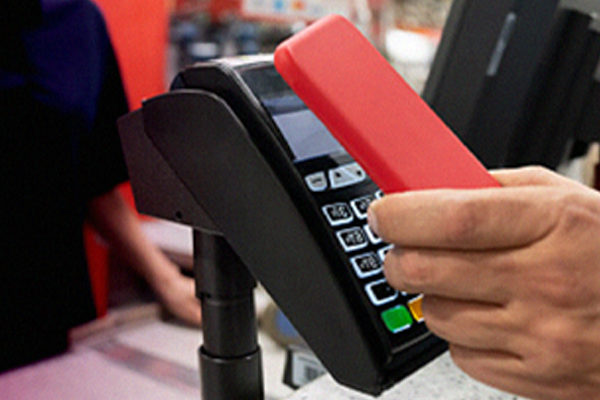
A survey from Entrust details preferences of the modern banking customer, with consumers indicating a need for online banking capabilities, secure cards with chips and enhanced payment security
The global transformation of banking and payments has only accelerated over the past few years, and between web trends and a global pandemic, the industry has seen disruption from all angles. Consumers are digitally connected in almost all facets of their lives — and it’s evident they expect the same from their banks and payment experiences, with consumers overwhelmingly expressing a preference for digital offerings from their financial institutions. Amid this critical time for banks and credit unions, Entrust, a global leader in trusted identity, payments and data protection, set out to uncover how this disruption has impacted consumer sentiment, preferences, and habits in its new data study released today, “The Great Payments Disruption.”
Entrust surveyed 1,350 consumers from nine countries, including the United States, Canada, United Kingdom, Germany, Saudi Arabia, United Arab Emirates, Singapore, Australia and Indonesia, who have made or received digital payments in the past 12 months. The results help paint a picture of where the banking industry stands in 2022, and what the future holds as The Great Payments Disruption continues.
“This study highlights how more than ever, consumer banking is about digital interactions first, and that they must create that digital experience with security at its foundation,” said Jenn Markey, vice president of product marketing at Entrust. “Our study found both an overwhelming preference for online banking and a significant concern about fraud – in fact, more than two-thirds of consumers in our survey changed their bank or credit union after receiving a fraud or privacy alert. It’s clear that financial institutions must meld rich digital experiences with proven security measures such as biometric security solutions to increase consumer trust and loyalty.”
The Dawn of a New Banking Landscape
Each section of the study considers a different aspect of the transition in the banking and payments industry as more digital, contactless options become available for consumers. Here are some of the key findings from each section:
- Omnichannel touchpoints are increasingly important in digital banking: 88% of respondents said they prefer to do their banking online in some form - clear evidence that digital banking is the new norm. However, it is still essential to provide a variety of digital options, as 59% said they prefer using the app from their bank or credit union, while 29% prefer their desktop web browser. Some people do still prefer in-person banking, such as at a branch (8%) or at an interactive teller machine (3%). Overall, it is essential for banks to offer omnichannel, digital-first solutions to resonate with today’s consumers.
- Customers are security-conscious and lack of security can have damaging consequences: 90% of respondents said they were concerned about the potential of banking or credit fraud as banking and credit become more digital. Many respondents had personal experience with these fraud risks, with 42% saying they have received notification of a personal banking or credit fraud in the past 12 months. These incidents clearly damage customer loyalty, as 67% of respondents notified of fraud changed their bank or credit union as a result.
- Fee structures and flexible payment options give banks an edge: Consumers are most likely to consider lower fees, digital solutions and security when choosing or changing their bank. With consumers looking for high-quality, low-cost digital banking, challenger banks could add to their current disruption by offering things like fee-free overdraft protection and unlimited foreign exchange. There is widespread interest in the digital banking atmosphere, with 86% of respondents from the U.S. saying they would consider using a branchless online banking service for their banking. Additionally, challenger banks offer new ways to pay, and 52% of respondents said they would consider using digital currencies for payments.
- More digitally issued cards could further fuel the rise of contactless payments: Respondents listed credit/debit cards with chips (50%) as their most preferred payment method, but contactless credit/debit cards (48%) were a close second. Additionally, 53% of respondents said they’ve received a digitally issued debit or credit card from their bank or credit union. Digital cards can be an effective selling point as almost two-thirds of survey respondents prefer to open a bank account digitally. This preference is high across generations as well: Gen Z (65%), Millennial (69%) and Gen X (54%).
To learn more about The Great Payments Disruption and download a full copy of the first report, visit https://www.entrust.com/c/great-payments-disruption.
Related News
- 01:00 am

Today, Orange (www.Orange.com) and the German Development Cooperation are inaugurating an “Orange Digital Center” in the Redland Tower at Ankorondrano, a digital ecosystem entirely dedicated to the development of digital skills and innovation, attended by the highest political and administrative authorities from Madagascar, Representatives of Germany and France in Madagascar, members of Orange Madagascar board and Orange Group Executive Committee led by its Chairman and CEO Stéphane Richard.
Following in the footsteps of Tunisia, Senegal, Ethiopia, Mali, Côte d’Ivoire, Cameroon, Egypt and Jordan, it is in Antananarivo, that this 9th Orange Digital Center is inaugurated.
Spread over 800 sq. m, it brings together four strategic programs of the Orange group, namely; a coding school, a solidarity FabLab - one of the Orange Foundation's digital manufacturing workshops, installed at the University of Antananarivo -, and an Orange Fab start-up accelerator, supported by Orange Ventures Africa, the investment fund.
All of the programs are provided free-of charge and open to everyone. They range from digital training for young people, 90% of which are practical, start-up acceleration, and guidance for project bearers and investment.
Working as a network, the Orange Digital Centers allow experiences and expertise to be shared between countries and offer a simple and inclusive approach to improve young people's employability, encourage innovative entrepreneurship and promote the local digital ecosystem.
Officially inaugurated today, the Orange Digital Center in Madagascar has been operational since October 19, 2021 and has already hosted several training sessions and digital events. In addition, Orange Madagascar, in partnership with some universities in Madagascar agreed to establish two Orange Digital Center Club, extensions of the coding school within the University of Fianarantsoa and the University of Antsiranana, thus complementing the education system to give as many people as possible access to new technologies and support them in putting these technologies to use them to their full extent.
Orange and the German Development Cooperation are working together as part of a development partnership within the develoPPP program, which the Deutsche Gesellschaft für Internationale Zusammenarbeit (GIZ) GmbH is implementing on behalf of the German Federal Ministry of Economic Cooperation and Development (BMZ). The goal is to fulfil their shared vision, fostering youth employability while supporting sustainable growth and the country's digital transformation. The programme is also working to advance gender equality and inclusion by promoting access for women and girls to ICT jobs.
Through digital technology, this programme focuses on the following sustainable development goals in line with the United Nations 2030 Agenda for Sustainable Development: (SDG 4) quality education, (SDG 5) gender equality, (SDG 8) decent work and economic growth, (SDG 9) industry, innovation and infrastructure, (SDG 10) reduced inequalities and (SDG 17) partnerships for goals.
Stéphane Richard, Chairman and CEO of Orange, says: “Orange acts as a responsible company across its activities. This sense of responsibility is a central value that has been placed at the heart of the Group’s strategic plan, Engage 2025. To promote digital services as a vector for inclusion and to ensure they are available to the widest possible audience, we aim to open an Orange Digital Center in every country in which we are present by 2025. This ambition clearly demonstrates our determination to harness the positive power of digital innovation.”
Alioune Ndiaye, Chairman and CEO of Orange Middle East and Africa, says: “I am very proud to inaugurate the 9th Orange Digital Center today in Madagascar, which is part of a network of 32 Orange Digital Centers that will be deployed not only, in Africa and the Middle East, but also in Europe. The objective is to democratize access to digital technology to young people - with or without qualifications - giving them access to the latest technological skills to strengthen their employability and prepare them for the jobs of tomorrow.”
Anja Heuft , Acting Country Director for Madagascar, Maurice, Seychelles & Comores says: “As an implementing agency of the German government, we, GIZ, are enthusiastic to contribute and accompany the digital transformation in Madagascar with inaugurating the Orange Digital Center today here in Antananarivo. Creating a hub for digital competences, innovative ideas and creative exchange, ultimately improving the employability of youth holds an enormous potential for Madagascar and the future development of its economy and people in the long term. We are happy to scale our joint experiences of the already existing ODC and start another digital success story in Madagascar”
Frédéric Debord, CEO of Orange Madagascar : “Orange Madagascar’s commitment to digital inclusion is a reality. As a partner in digital transformation, we are a major player in the socio-economic development of the country through innovative ecosystems and specific schemes to develop entrepreneurship. Thus, the Orange Digital Center and the 2 Orange Digital Centers Club soon installed in universities in the regions of Fianarantsoa and Antsiranana brings together all the necessary skills to give as many people possible access to new technologies and support in using them to their full extent.”
Related News
- 06:00 am
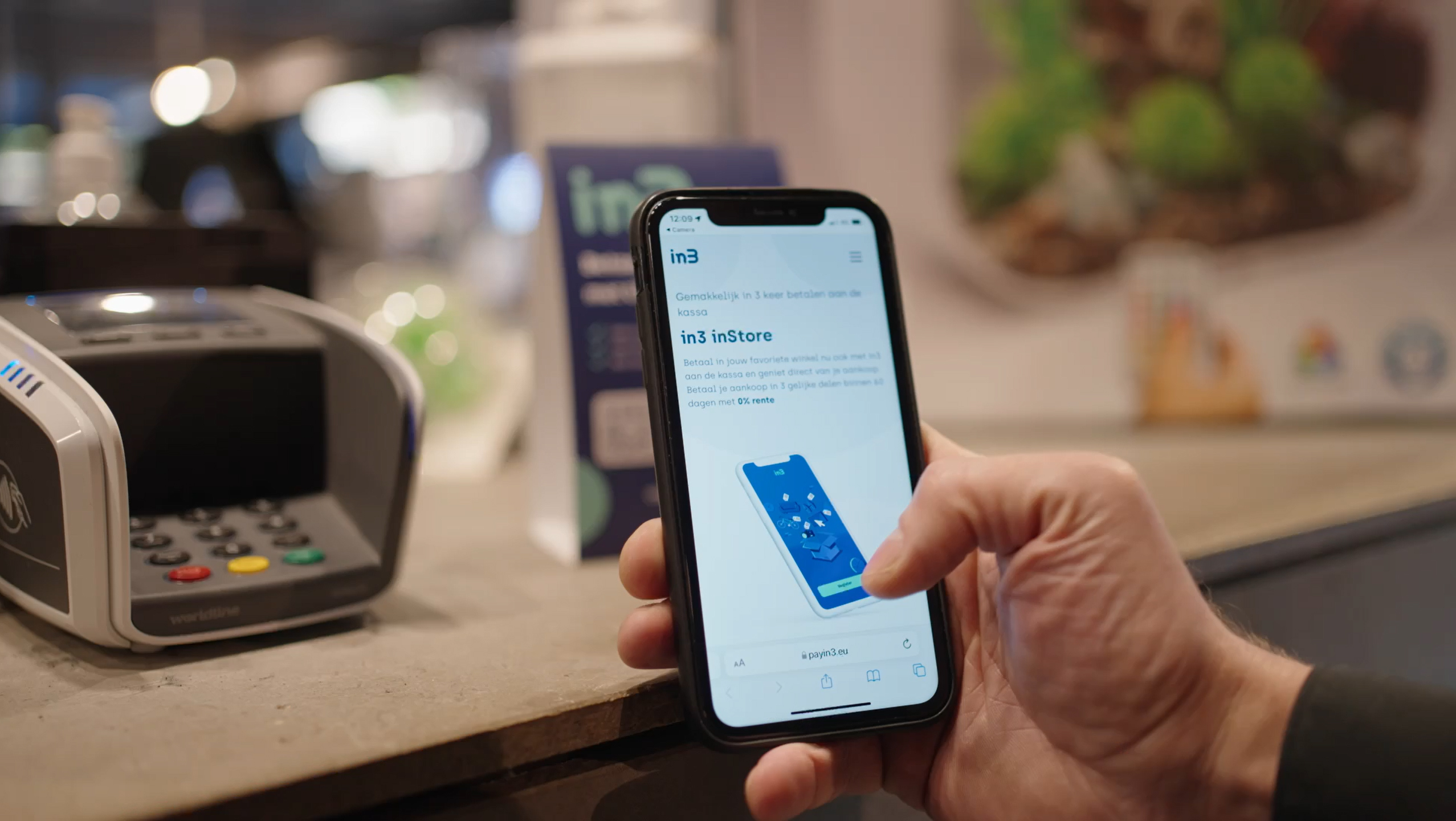
- Partnership: The Dutch fintech partners with global payments company Worldline to provide online and offline customers with BNPL offers at no fee for the end consumer
- Growth: in3 revenue has increased 300% year-on-year since 2018 as it scales reach and operations
in3, a leading Dutch Buy-Now-Pay-Later (BNPL) fintech business, has today announced a $11.1m funding round from Finch Capital as growth soars. In addition to this, in3 are today launching free BNPL services for consumers, starting in the Netherlands, through an innovative partnership with global digital payments leader Worldline.
Working with payment service partners, in3 offers consumers the ability to pay for purchases in three instalments at zero costs: no interest or transaction costs and without credit registration. Current customers include Kwik Fit, EP, La Souris, Matt sleeps, Dekbed-Discounter. Through their partnership with WorldLine, in3 will provide them with a technology stack that will allow both online and offline merchants, who are part of the Worldline network, to offer BNPL payment services to its customers without additional integrations.
The BNPL payment in the Netherlands is expected to grow by 74.8% in 2022 reaching $7.6b. This growth has been spurred on businesses moving online and by the growth of ecommerce, more generally. The pandemic certainly helped propel the move to online. Looking ahead, the BNPL payment adoption is expected to grow steadily at a CAGR of 32.8% over the next 6 years. The BNPL Gross Merchandise Value in the country will increase from $4.3b in 2021 to reach $41.7b million in 2028.
Hans Langenhuizen, CEO in3: “We will be supporting Worldline’s merchants by enabling them to offer BNPL to consumers at no fee. We look forward to working with their team and customers. This is testament to the robust platform of in3 and our dedicated team to create seamless integrations with all our partners.”
in3 was created in 2018 as an antidote to the traditional BNPL market, Hans Langenhuizen reflected on the early days: “Our founding team was part of the early wave of the BNPL movement in the early 2010s. It quickly became a crowded market so we stood back and took a fresh look at the BNPL model and saw several limitations in all of the available products. First, you need to pay the full amount within 14 days and there are very low spending limits. At the same time we noticed a demand to pay larger expenses in instalments. But paying in instalments has even more disadvantages for consumers such as high interest rates and they are documented in their national credit register. These products benefit from people who cannot afford to buy at one time. This was not sustainable from perspective.”
“in3 was our honest approach to offer BNPL to consumers without costs which effectively allowed people to pay in 3 instalments within sixty days, with 0% interest. Because of the term of 60 days, a registration in the credit registers is not required. This gives the consumer the possibility to buy what they want instead of compromising on quality products. For example, you can buy that refrigerator at no extra cost and then you have three salaries to pay for it. Our merchants profit from in3 in their checkout as well: it results in a substantial increase in transactions and importantly, a higher average transaction value. We see that the buyer more often goes for the more expensive product.”
Erwin Oudshoorn, Manager Direct Sales Netherlands: “BNPL is a tremendous value add for merchants in today’s uncertain times and we are thrilled to work with the team at in3 to expand our service offerings.”
To support the company’s rapid growth, In3 has secured a $11.1m funding round from Finch Capital. The capital will be used to further build out the technology platform and continuously invest in improved customer satisfaction through strategic hiring across the entire team.
Radboud Vlaar, MD Finch Capital: ‘’in3 has demonstrated a steady and consistent growth trajectory due to its strong technological capabilities and management which has enabled it to provide BNPL to Dutch consumers through integrations with payments providers. The company is enabling a truly omnichannel payments solution.’’
Related News
- 05:00 am
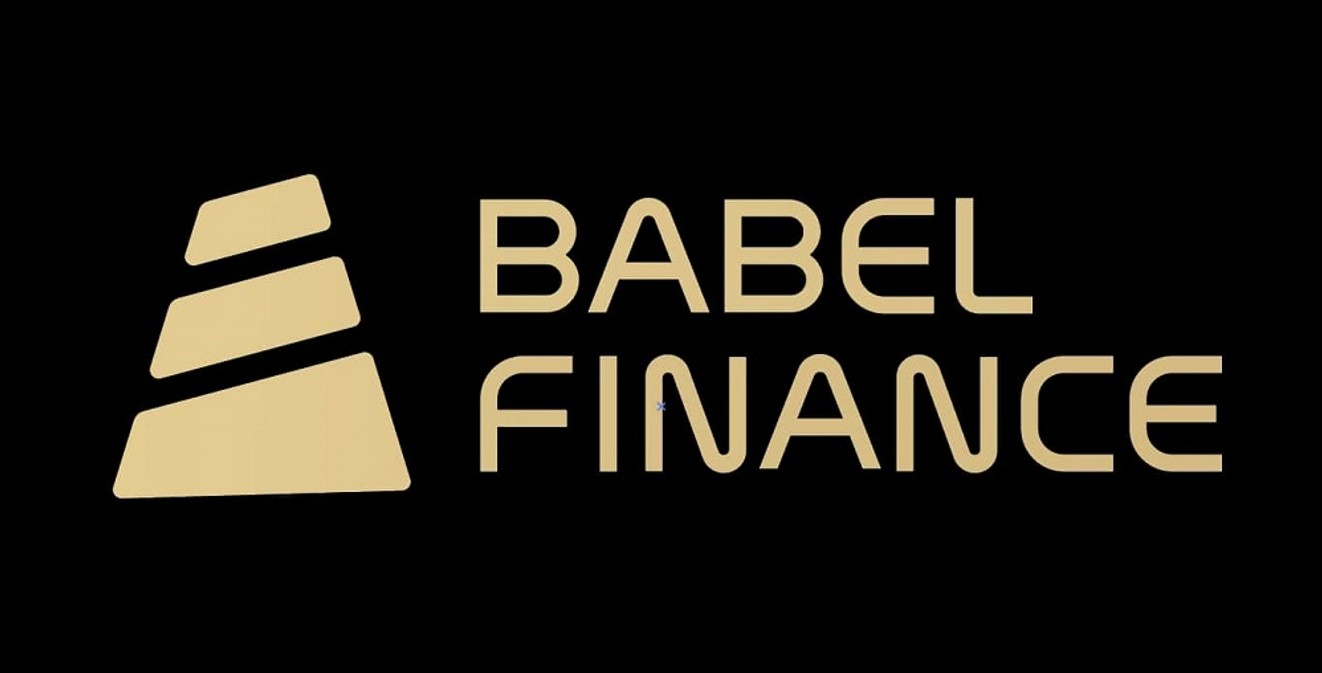
Babel Finance Asset Management's research specialists are optimistic about the long-term value of crypto assets. Since the currency's birth, long-term Bitcoin(BTC) investors have profited handsomely, and more and more traditional financial institutions are realizing it. Financial institutions increasingly adopt crypto-asset markets, as seen by the high trade volumes recorded by Babel Finance's crypto trading division.
The COVID-19 pandemic in 2021 wreaked havoc worldwide, putting people's lives and livelihoods in jeopardy. However, because of unprecedented monetary stimulus from central banks throughout the world, the cryptocurrency sector achieved a pinnacle boom last year. The total market value of cryptocurrencies soared from US$760 billion in January 2021 to US$2.8 trillion in December, with Bitcoin's market value eventually settling at US$874 billion after reaching US$1.3 trillion in November.
In light of this, the Babel Finance asset management research team predicts how the crypto-asset markets will develop in 2022 in this paper. The following are some of the report's significant predictions:
- Bitcoin's full-year returns in 2022 will be positive: Despite expectations for a rapid rise in US Fed rates, real cash yields in developed markets will remain negative, making it very difficult to get positive returns in the bond market.
- The attributes of Bitcoin will gradually transition from a risky asset to a safe-haven asset: As other safe-haven assets lose their appeal, the Babel Finance's financing team sees investors from emerging economies will seek any safe haven from catastrophic losses out of fear of a sharp devaluation of fiat currencies during 2022.
- The infrastructure improvement will see CeDeFi usher in an explosive growth period: Aave, currently the largest DeFi lending protocol on the Ethereum network, has launched Aave Pro for institutional investors. Institutions can now enter the decentralized lending market using a whitelist. As wallets and custody services that meet institutional security standards such as MetaMask, Institution, and Fireblocks matured over the past year, the convergence of CeDeFi will also enter an explosive period.
Star fund managers, Wall Street giants, and ordinary investors flocked to the cryptocurrency space. El Salvador was the first country to adopt bitcoin as legal tender in 2021; will other countries follow suit?
The report also highlights 2021 developments and an in-depth analysis of the 2021 crypto-asset market. Babel Finance's asset management research team is confident that the global economy is still in a state of expansion, and tight monetary policy will not kill the bull market, but it will create great volatility and the opportunities that come with it.
Babel Finance and its experts will continue to monitor crypto-asset market trends and threats. It will look at the regulatory and supervisory implications of the global crypto-assets market to pivot market opportunities and threats. Contact us for a copy of the 2021–2022 Crypto Asset Market Report to learn more about Babel Finance's findings.
Notes to editors and readers
The report is based on the author's own research, analysis, and judgment and does not constitute an investment recommendation. Babel Finance assumes no responsibility for any consequences that readers may have.
Related News
- 03:00 am

US President Joe Biden signed a sweeping executive order on cryptocurrencies, signaling broader future oversight of the industry.
What’s in the Order? It lays out a policy for digital assets and attempts to address the lack of a US regulatory framework for crypto:
- The order directs the Treasury Department to produce a report on the “future of money and payment systems,” including implications for economic growth, national security, and inclusion.
- It also calls for research and development into the creation of a US central bank digital currency (CBDC). It directs the government to assess the capacity needs for a potential CBDC and encourages the Federal Reserve to continue its research efforts.
What this means: The Biden administration struck a neutral tone on crypto.
- A White House official acknowledged digital assets “provide opportunities for American innovation and competitiveness,” while the order also noted they pose possible “risks for consumers, businesses, the broader financial system, and the climate.”
- The order does not impose new crypto regulations or give opinions on rules the administration wants agencies to follow. However, it does hint that future regulations may be on the horizon.
- The call for more research into a CBDC follows a paper the Fed issued in January outlining the pros and cons of a digital dollar.
- There’s also a veiled mention of an increased focus on “national security,” which the order mentions several times. This may be driven by concerns that crypto is being used by Russia to evade financial sanctions imposed after its invasion of Ukraine and recent high-profile cases of crypto crime.
The big takeaway: The order doesn’t offer a timeframe and it’s hard to predict when oversight will become law. But it’s clear that big changes are on the way for US crypto regulation. The signing of the order signals the Biden administration will become increasingly involved in oversight of the digital asset space and expresses its concern that an absence of governance leaves consumers and financial systems at risk.
As the order’s fact sheet noted, around 16% of adult Americans or about 40 million people use crypto. Its emergence into the mainstream is forcing the White House to reconsider how it is regulated and where it belongs within traditional financial systems.
In addition, while the Biden administration's official backing of research into a CBDC isn’t an explicit show of support, it’s evidence that the concept is being taken seriously and it may help expedite a final decision on whether the US will follow other countries that are looking into and testing a CBDC.
Related News
- 01:00 am

Ebitly and freemium open banking platform Nordigen have partnered to provide financial information straight onto the program from users’ bank accounts.
Ebitly is a real-time cashflow planning platform, which aims to give small and medium-sized enterprises access to smart and powerful financial management tools. The program’s interface is simple, but is packed with features. The toolset includes a “virtual CFO” which provides users with financial recommendations, payment analysis and reminders, as well as risk assessment. Additionally, Ebitly boasts a predictions system, with users being able to add their own forecast, or receive one from the platform’s automated AI. The predictions are tracked against existing payments and invoices, eliminating duplicate data.
“Money is a huge aspect of any business and we believe that quality financial tools should be available to all entrepreneurs, no matter where they are in their business development. Our platform helps manage cashflow, as well as plan for the future and help tackle diverse scenarios that may come up. It is impossible to plan cashflow successfully without accurate information, so we turned to Nordigen to enable direct connections with our users’ bank accounts to acquire the most updated transactional data,'' says Madis Lämmergas, CEO of Ebitly.
Nordigen’s open banking technology allows Ebitly’s users to securely link their business bank accounts to the accounting platform, allowing it to update continuously with each new transaction.
“Financial management platforms, such as Ebitly’s solution, are extremely helpful to business owners, keeping them in the loop in terms of all financial aspects of their company. We are happy to know that our open banking technology helps budding entrepreneurs further develop and come closer to their goals through successful money management, ” notes Rolands Mesters, co-founder and CEO of Nordigen.
Related News
- 02:00 am

Ascenda, the technology company that makes payments and banking more rewarding, has partnered with Hyundai Card, a leading credit card issuer, to power the launch of a new lineup of consumer and corporate cards on the American Express Network in South Korea.
The new Hyundai American Express Card portfolio encompasses a total of six products for consumers and corporates. The reward program is brought to life through seamless digital experiences powered by Ascenda’s advanced proprietary technology. This includes the broadest points exchange program in the market with over 20 transfer partners, plus instant travel redemption and fully digital benefit fulfillment. This innovative program provides issuers with turnkey access to world-class rewards, benefits and end-to-end points liability management.
“I’m pleased to share that Ascenda has partnered with Hyundai Card to power a new line-up of disruptive consumer and corporate cards which are set to unlock high-value consumer spend across South Korea. This launch means on the ground consumers will now have access to aspirational benefits as well as world-class rewards via the markets largest points exchange program with over 20 transfer partners”
Sebastian Grobys, Chief Commercial Officer, Ascenda, said: “This launch continues Ascenda’s trajectory of enabling unrivaled new value propositions for leading financial services brands worldwide. We are excited to partner with Hyundai Card on this new card portfolio that makes payments truly rewarding and delights customers with aspirational benefits.”
Youngho Cho, Head of PLCC AMEX Team, Hyundai Card, added: “This launch enables us to offer members a new set of compelling card propositions. Korean consumers are some of the most digitally savvy in the world, for this reason we’re delighted to be able to deploy a set of products that deliver seamless unrivaled rewards and experiences.”









